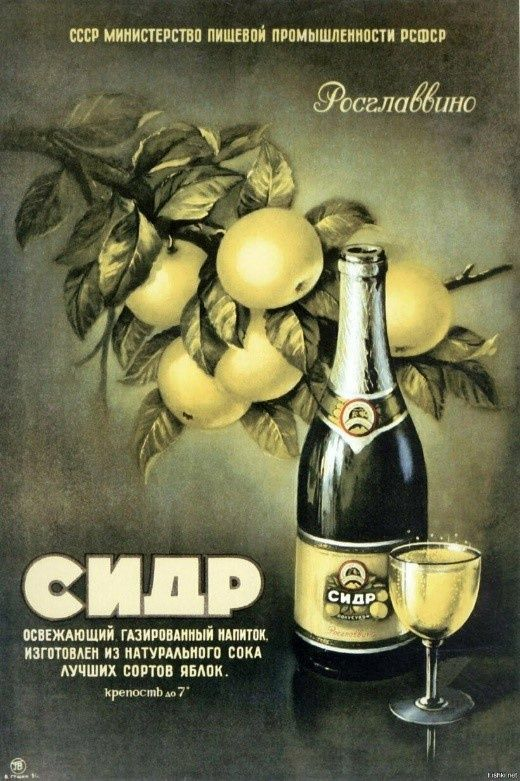News
Why cider was bottled in champagne bottles in the USSR: an explanation
Quality food was in short supply in the USSR, let alone alcoholic beverages. Nevertheless, the Soviet industry produced cider, but for some reason it was bottled in bottles that were no different from sparkling wine bottles.
Although this approach is still practiced today, Soviet citizens had their own theories as to why such containers were chosen for cider. OBOZ.UA found out the details.
The popularity of cider
Apple cider was not the most popular drink in the USSR, but after the war it was launched into more or less mass production. It was made using classical technology - by fermenting apple juice, which resulted in a low-alcohol carbonated drink. With some effort, you could find dry, semi-dry, and sweet cider on sale.
The fact that it did exist in the Union is evidenced by a scene from the popular cartoon series "Well, Wait!". In one of the episodes, Wolf comes to visit Hare and brings him an exquisite corked bottle. When he puts it on the table, a close-up shows the inscription on its label: "Cider". After that, the Wolf has a hard time removing the cork, making a terrible mess in the Hare's apartment.
Why a champagne bottle?
In fact, quality cider is still bottled in this shape to this day. This helps to retain more carbon dioxide in the drink. This is true for both apple drinks and sparkling wine, so this decision should not be surprising.
However, in the USSR, there were several hypotheses as to why this kind of container was used for cider. And here, of course, there were frauds and substitutions typical of Soviet production.
People often assumed that the same bottles were used for both beverages in order to minimize the cost of producing the containers. It was cheaper to print different labels than to design separate packaging.
In addition, Soviet laws required that containers be accepted from the public and reused for bottling products. This was not possible only with champagne. Therefore, "fugas" (as these bottles were called in the USSR) were filled with something simpler - a fruit and berry drink or cider.
But these versions were far from the only ones. Knowing how products were substituted in the USSR, some citizens assumed that Soviet wineries sold cheaper cider under the label "Soviet Champagne." An inexperienced consumer who bought sparkling wine only on New Year's Eve could easily overlook the substitution. It sounds a bit conspiratorial, but the reality of life in the Soviet Union made us believe in it.
Subscribe to the OBOZ.UA channels on Telegram and Viber to keep up with the latest events.




























